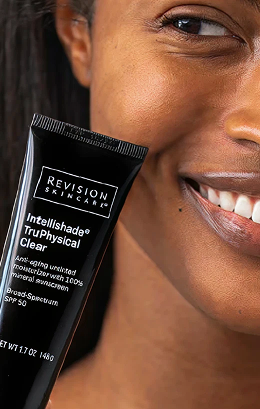A 12-week open-label, single-center clinical usage trial was conducted to determine the effectiveness of a dual product regimen consisting of a 0.5% retinol treatment and an anti-aging moisturizer with 30% vitamin C in women with mild to moderate hyperpigmented and photodamaged facial skin. Clinical grading of several efficacy parameters, tolerability evaluations, subject self-assessment questionnaires, and digital photography were completed at baseline and at weeks 4, 8, and 12. A total of 44 women completed the study. Effective ingredients incorporated into the 0.5% retinol treatment included encapsulated retinol for a retinol concentration of 0.5%, bakuchiol, and Ophiopogon japonicus root extract. The anti-aging moisturizer with 30% vitamin C contained 30% vitamin C in the form of tetrahexyldecyl ascorbate (THD ascorbate), alpha-tocopheryl acetate (vitamin E) and ubiquinone (coenzyme Q10). The facial regimen produced a statistically significant decrease (improvement) in clinical grading scores for all parameters assessed at weeks 8 and 12 when compared with baseline scores. In addition, the majority of these parameters were improved at week 4. The test regimen was well-perceived by the subjects for various inquiries regarding facial skin condition, product efficacy, and product attributes. Several tolerability parameters were assessed with no statistically significant increase except for dryness. A statistically significant increase in clinical grading scores for dryness on the face occurred at weeks 4 and 8 when compared to baseline scores. The increase in dryness is expected when introducing a retinol product to a facial regimen and the dryness did not persist to the week 12 time point.
J Drugs Dermatol. 2016;15(4):476-482.
THIS ARTICLE HAD BEEN MADE AVAILABLE FREE OF CHARGE.
PLEASE SCROLL DOWN TO ACCESS THE FULL TEXT OF THIS ARTICLE WITHOUT LOGGING IN.
NO PURCHASE NECESSARY.
PLEASE CONTACT THE PUBLISHER WITH ANY QUESTIONS.
